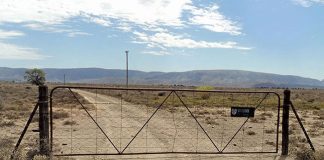About 46% of South Africa’s high potential arable land is in Mpumalanga, where mines have already reduced crop lands by 26% since 1997. This is according to a report compiled by the Bureau for Food and Agricultural Policy (BFAP). Jannie de Villiers, CEO of Grain SA, said that Mpumalanga was the country’s food basket, but that the province was being turned into a mine.
“If mining takes over all the agricultural land in the province, there will be a maize shortfall of 1 million tons. This means we’ll have to import maize, paying around R1 500/t more. This will be disastrous for food security.” Gerhard van der Burgh, scenario planner at BFAP, said the increase in the maize price would result in a 5% increase in the price of maize meal.
He added that rehabilitating land after mining was ineffective and no crop could ever be planted successfully on that land again.
“The replacement of thick layers of topsoil is not necessarily a recipe for crop success, as was commonly thought,” he said. “The compaction caused by machinery during rehabilitation is highly destructive – roots can’t penetrate deep enough to access stored water.”
Van der Burgh said that in most cases only grass for grazing could be planted on this land, but even this was not always successful. De Villiers said that most mines did not rehabilitate the land. “It’s common practice to finish mining, pay out shareholders and liquidate the company before rehabilitating the land. This way, no one can be compelled to fix the damage.”
According to the BFAP report, mining also pushes up transport costs for farmers by producing greater wear and tear on the roads.
“The trucks used for mining are far larger than those used to transport agricultural goods,” the report states. “This means that the axle loads on the roads will be 10 times higher than currently as more farms are replaced by mines.
“Should mines not maintain the roads they impact, farming transport costs could double over the next 20 years.” De Villiers said that while he understood the necessity for mines, balance was needed to ensure that the mining sector did not damage the agricultural sector.











